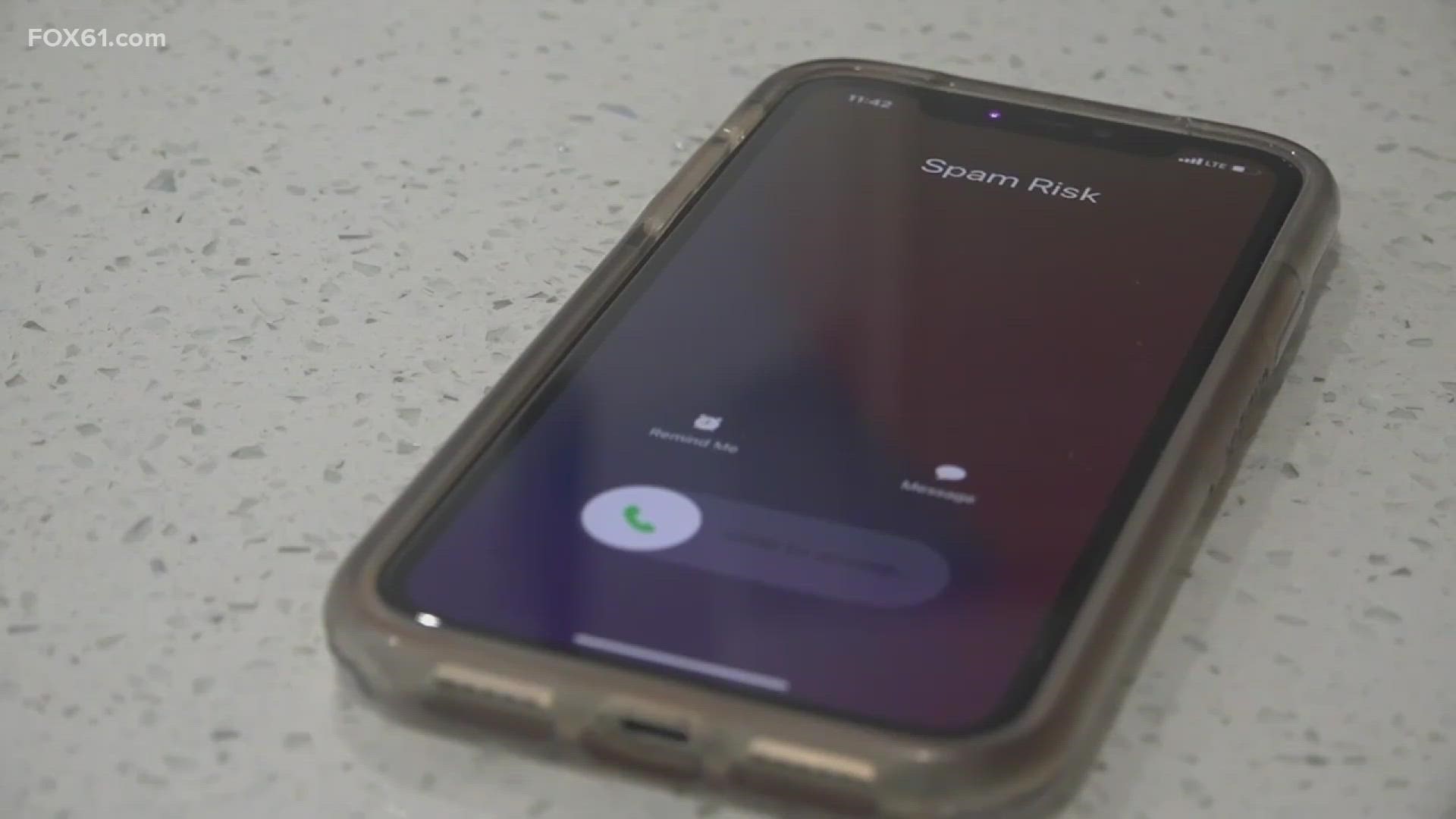HARTFORD, Conn — A bipartisan group of legislators along with Attorney General William Tong announced proposed legislation to strengthen Connecticut’s ability to fight robocalls Tuesday.
Officials said the bill would update current anti-robocall statutes to match new tactics and technology used by marketers to contact Connecticut residents.
Tong said the last time the laws were updated was 2015 and some sections have not been updated since they were first enacted in 1996.
The new legislation expands oversight to cover text messages, bans “gateway” voice over internet protocol (VoIP) providers from facilitating overseas scammers’ access to the U.S. telecom networks, allows for enforcement action against calls received by Connecticut area codes regardless of where the calls originate, bars telemarketers from contacting Connecticut residents before 9 a.m. and after 8 p.m., strengthens disclosures that telemarketers must make, and clarifies protections provided by the Do Not Call List.
Americans lose billions of dollars each year to robocall scams, according to officials.
Tong and legislators said current laws have failed to keep pace with the tactics and technology used by scammers.
"Our bipartisan proposal brings Connecticut’s robocall laws into the modern era. It’s not just phone calls anymore-- we need to crack down on fraudulent text messages too. And we need to take on the gateway providers that get rich off patching overseas scammers into our American networks. With strong, modern laws we can shut down this telecom fraud highway and bring scammers to justice,” said Tong.
“In addition to being just downright annoying, robocalls and telemarketing – especially those originating overseas – are a hotbed of consumer fraud,” State Rep. Mike D’Agostino said.
State Rep. David Rutigliano said, “These calls and deceptive tactics are not just a nuisance, they are potential fraud.”
According to the AARP, In 2020, 9 in 10 American adults encountered a fraud attempt, and according to the Federal Trade Commission, and the phone remains the most successful way to target a scam.
"Our consumer protections need to line up with ever changing technology and cover all forms of person to person communications,” said Nora Duncan, State Director for AARP Connecticut.
Connecticut consumers received approximately 471 million robocalls in 2022 alone, according to officials; 26% of those were scams.
Many originate overseas using automated dialing systems, chat bots, and prerecorded calls. VoIP gateway (calls over the internet) facilitate these scams by enabling these foreign calls into the U.S. telephone network. Without these willing gateway providers, these scam calls could not get through said officials.
"This legislation seeks to hold those gateway providers accountable by extending liability to those who provide substantial support or assistance to those engaging in the fraud," the Office of the Attorney General said in its release.
Connecticut and 15 other states are leading the nationwide Anti-Robocall Litigation Task Force. In its first action last summer, the task force issued 20 civil investigative demands seeking information from 20 gateway providers and other entities allegedly responsible for a majority of foreign robocall traffic into our country. That investigation is active and ongoing.
Doug Stewart is the Senior Digital Content Producer at FOX61 News. He can be reached at dstewart@fox61.com.
Have a story idea or something on your mind you want to share? We want to hear from you! Email us at newstips@fox61.com
HERE ARE MORE WAYS TO GET FOX61 NEWS
Download the FOX61 News APP
iTunes: Click here to download
Google Play: Click here to download
Stream Live on ROKU: Add the channel from the ROKU store or by searching FOX61.
Steam Live on FIRE TV: Search ‘FOX61’ and click ‘Get’ to download.

